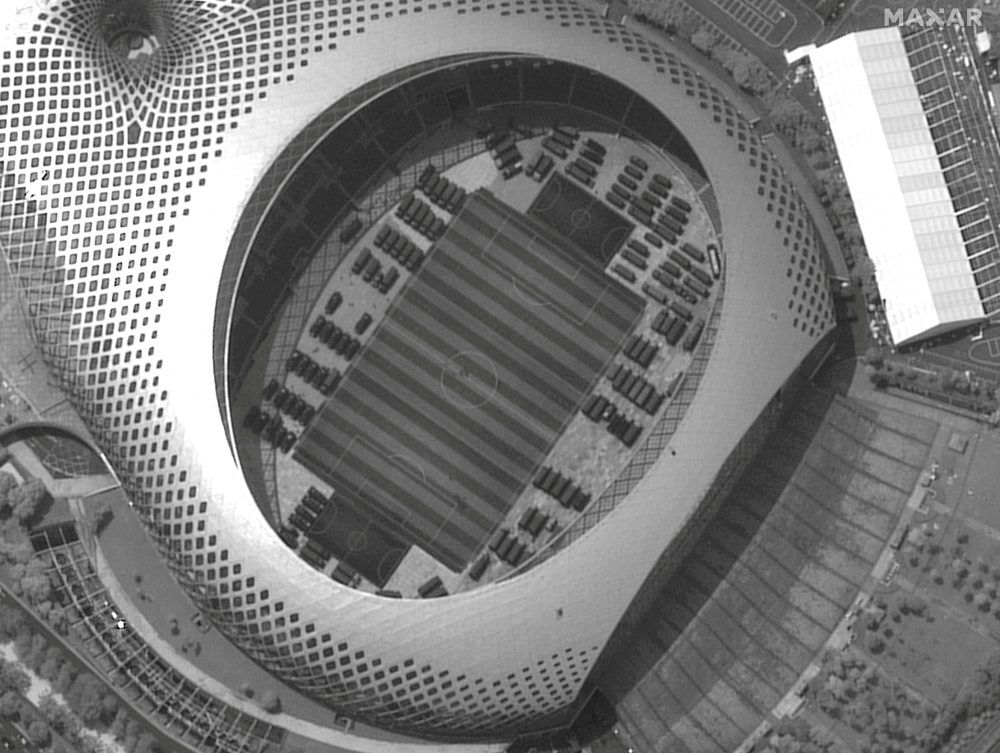World watching how Beijing, and Vancouver, react to mass protests in Hong Kong

Credit to Author: Joanne Lee-Young| Date: Fri, 16 Aug 2019 00:42:10 +0000
Politicians around the world are calling for calm, but also warning Beijing about its handling of mass demonstrations in Hong Kong as China moved military units into a sports stadium across the water.
Thousands of soldiers and armoured vehicles were photographed on Thursday inside the Shenzhen Bay Sports Center Stadium just a few kilometres from the border with Hong Kong, a move seen as Beijing possibly preparing to crack down on the protests it has labelled as being “near terrorism”.
Canadian Foreign Affairs Minister Chrystia Freeland said earlier this week that it would be a “mistake” for China to call anti-government protesters in Hong Kong “terrorists” and that Chinese leaders should “listen carefully” to the concerns of its people. In London, China’s ambassador to the U.K. warned British leaders not to “interfere” in the affairs of its former colony. Meanwhile, U.S. President Donald Trump tied a China-U.S. trade deal to Beijing “working humanely with Hong Kong first!”
The high-stakes standoff is of particular interest to many in Vancouver, which was described this week by author Louisa Lim, in an article for The New York Times, as a hot spot outside China where those for and against the protests in Hong Kong have each been “battling” to win sympathizers.
Vancouver has long been seen by those on both sides of the political debate as a safe place to move, live and invest in times of risk. But due to recent events, there is a growing sense of urgency, according to immigration lawyers and wealth managers.
“It’s the emotion. That’s been the change,” said Richard Kurland, a Vancouver-based immigration lawyer. “Folks are in preparation mode. Noah built the boat before the flood, and some are preparing for an urgent departure.”
He has been advising clients who live in Hong Kong to review their Canadian documents. “Some are looking at expiry dates on their passports, and at permanent residency cards for their validity. The next thing, typically, is to advance-book air tickets. Reservations are refundable so people feel they can do that.”
He has even been telling some clients that if their Canadian papers need updating, they have the option, in a pinch, of flying to a U.S. city first and “seeking a temporary, B1 or B2 visitor visa” which would allow for travelling for six months for business or tourism.
He says about 10 families in the last two weeks have contacted him to discuss arrangements specifically related to planning because of the protests in Hong Kong. It is hard to quantify what that means, or if any of those families will eventually follow through by moving residencies or assets.
What is palpable, said Kurland, is the “edge of panic” in the tone of the phone calls.
Marcus Lai, a Vancouver-based vice-president and portfolio manager with RBC Dominion Securities, has been gauging reaction from local realtors and mortgage brokers. He said it is still too early to see any trends in sales data, which might not even capture a movement of wealth.
“Both brokers and realtors are seeing increased volumes of Hong Kong residents, Canadian passport holders, who are coming back to look at buying real estate.”
Vancouver has been a hedge city for years as families from Hong Kong diversify their assets in Vancouver in case of political instability linked to Chinese rule over Hong Kong.
But Lai agreed that there is “more commitment now. It used to be, ‘We might come back one day.’ It’s always been very difficult to make the transition (to moving from Hong Kong to Vancouver) from an economic or social standpoint. But now they are exploring more concrete options.”
Over the last few months, the amount of money moved in personal portfolios from Hong Kong to Vancouver has risen, said Lai.
— with file from Reuters